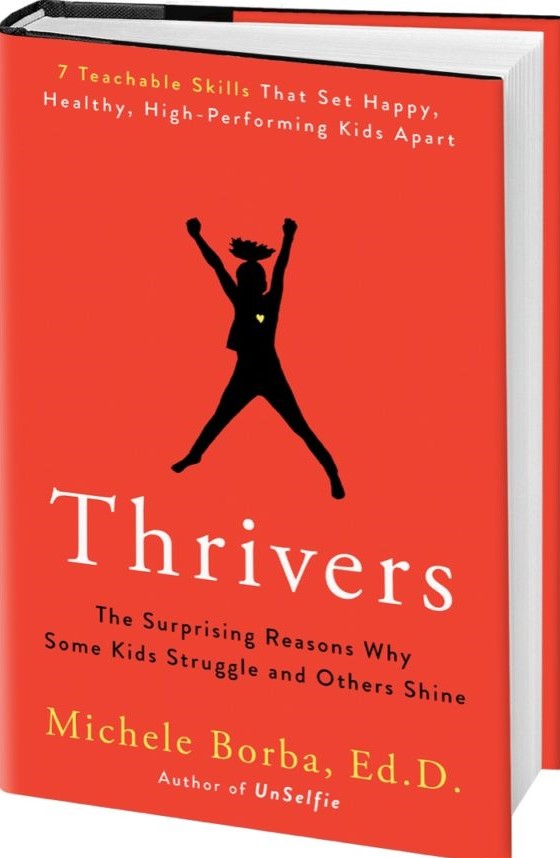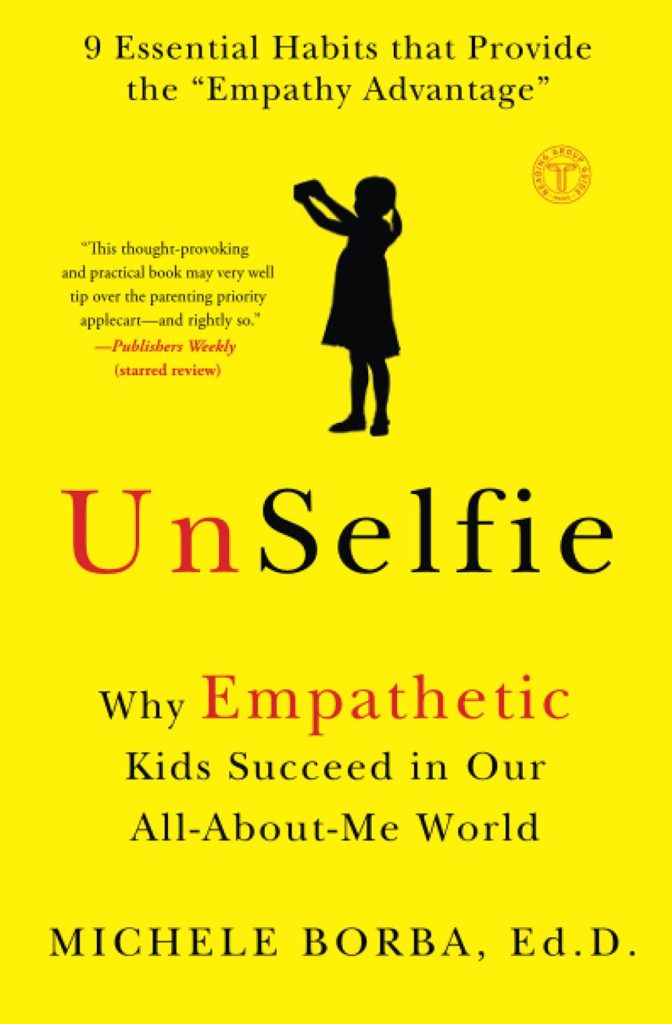(by Kim Marshall, a Marshall Memo summary of a recent Educational Leadership article by author/psychologist Dr. Michele Borba)

When they’re adults, more than half of today’s students will work in jobs that don’t yet exist, says author/psychologist Michele Borba in this Educational Leadership article. Her research has identified seven skill sets that are vital to success in this ever-changing world. “These strengths are not fixed nor based on scores, IQs, or ZIP codes,” says Borba, “but teachable abilities that can be woven into daily lessons and help prepare kids for life.” Here are the strengths, each with several associated abilities:
• Self-confidence: Self-awareness, strength awareness, finding purpose – “Confidence is the quiet understanding of ‘who I am’ that nurtures inner assuredness and appreciation of one’s unique strengths and interests,” says Borba, “as well as areas in need of improvement.”
• Empathy: Emotional literacy, perspective-taking, empathic concern – “Empathy allows us to feel with and understand others,” says Borba, “setting us apart from the machines we create. Its cultivation will be crucial to successfully navigating life in a world dominated by artificial intelligence and augmented reality.” Students can get better at perspective-taking through cooperative learning activities, retelling stories from the point of view of different characters, or acting out a different way of seeing a historical or current event.
• Self-control: Attentive focus, self-management, healthy decision-making – Many young people can’t go more than two minutes without checking their devices, so self-control is a key growth area. Schools can help students set limits and teach mindfulness, meditation, and yoga.
• Integrity: Moral awareness, moral identity, ethical thinking – “Students don’t learn integrity through osmosis,” says Borba; “it must be intentionally taught, and we have to work at it.” Studies show that despite expressing self-satisfaction with their ethical standards and conduct, 57 percent of teenagers agree with the statement, “Successful people do what they have to do to win, even if it involves cheating.” Teachers can lead ethically focused discussions about books like The Outsiders and foster moral consciousness through service projects addressing issues like climate change and income disparities.
• Curiosity: Curious mindset, creative problem-solving, divergent thinking – “If adversity strikes,” says Borba, “this strength helps kids stay open to possibilities and find solutions.” Curiosity is an essential skill in a rapidly evolving job market. Teachers can nurture it by asking provocative open-ended questions, designing lessons that make students pause and wonder, and scheduling time when groups can explore topics of interest.
• Perseverance: Growth mindset, goal setting, learning from failure – “Students who attribute gains to their inner drive are more creative and resilient than those who think they have no control over outcomes,” says Borba. Schools need to temper parents’ overprotective tendencies; for example, a school that forbids parents, starting in third grade, from escorting children to their classrooms and dropping off forgotten assignments or nonessential items. Schools also need to cut back on extrinsic rewards like trophies and stickers, foster an “I got this” attitude to challenging situations, and teach students to set goals and track progress.
• Optimism: Optimistic thinking, assertive communication, hope – One in three high-school students report persistent feelings of sadness and hopelessness, reported a recent study, and instant access to disturbing news is making the world seem volatile and scary. Fortunately, research has shown that explicit, skillful teaching of optimism protects against depression, increases engagement and resilience, and boosts learning and work productivity.
“Our moral obligation,” Borba concludes, “is to equip this generation with the content and abilities they will need to handle an unpredictable future and thrive. Doing so may be our most important educational task.”
Dr. Borba’s book is Thrivers: The Surprising Reasons Why Some Kids Struggle and Others Shine (G.P. Putnam’s Sons, 2021) Another great book by Dr. Borba:



Thank you Paul for suggesting this book! I like how it highlights timeless life skills necessary not only for future careers but also happiness. What a valuable point of view/lesson for parents and teachers to tailor education to support children’s talents and skills to help them develop self-confidence, build character, cultivate relationships, remain flexible, and hold their own in life.